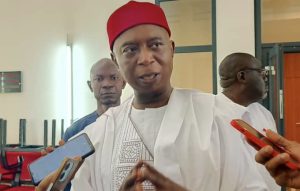
The Nigerian Senate Committee on Reparations and Repatriations, chaired by Senator Ned Munir Nwoko, has a solemn and historic mandate to address centuries-old injustices related to slavery and colonialism, including the return of looted cultural artefacts and heritage materials taken during colonial conquests or illicit trade.
The committee’s work is structured, evidence-based, and far-reaching, aiming not only to address cultural and historical matters but also to cover various sectors affected by historical injustices.
The committee is committed to collating credible evidence of wrongdoing by individuals, states, corporations, and institutions, both past and present, with the goal of addressing systemic injustices that have marginalized groups within Nigeria and the African diaspora.
“The work before us is not symbolic or ceremonial,” Nwoko stated. “It is structured, evidence-based, and far-reaching. We are empowered to investigate local and international injustices past and ongoing and make concrete recommendations for compensation and redress.”
It seeks to establish dialogical frameworks and propose legal and policy templates aligned with national and international laws, collaborating with experts in law, history, anthropology, economics, and diplomacy.
To support its efforts, the committee has appointed Chukwuebuka Anyaduba, a development strategist and cultural advocate, as a consultant.
Anyaduba will advise on strategy, stakeholder engagement, international partnerships, and communications, particularly in promoting awareness and advocating for the repatriation of stolen artefacts and reparative justice. His appointment is seen as strategic for amplifying Nigeria’s agenda on reparations and shaping its global cultural legacy.
The committee also plans to engage local and international stakeholders through dialogue, diplomacy, and policy development to facilitate the return of cultural assets looted during colonialism and slavery.
Citing the Niger Delta oil degradation, extrajudicial killings, lead poisoning in Zamfara, and incidents such as Daki Biyu demolitions, the Chairman declared there are “no-go areas” for the Committee except cases currently under active judicial consideration.
“We will deal with cases involving military abuse, multinational corporations, or government negligence. Our door is open to all Nigerians and Africans seeking justice, as long as the matter is not before the courts,” he said, urging litigants to withdraw pending cases if they want the Committee to intervene.
This initiative aligns with broader global efforts to reclaim cultural heritage and seek restorative justice for historical wrongs.
In summary, the Nigerian Senate Committee on Reparations and Repatriations is actively pursuing the repatriation of looted cultural artefacts as part of a comprehensive mandate to address historical injustices inflicted by slavery and colonialism, supported by expert collaboration and international engagement.
He called on stakeholders present including legislators, policymakers, civil society leaders, legal experts, historians, and international partners to contribute insights that would help shape an “African-common position” and galvanize global support for restitution efforts.
